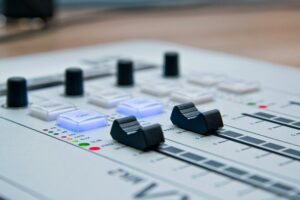In today’s rapidly evolving world, the importance of a sound education is more critical than ever. As technology reshapes industries and global connections grow, individuals equipped with a solid educational foundation are better prepared to navigate these changes. A sound education goes beyond mere knowledge acquisition; it fosters critical thinking, creativity, and adaptability.
Educators and policymakers recognize that a robust educational system is key to personal and societal success. It involves developing skills necessary for applying knowledge in real-world situations. This holistic approach ensures that learners are informed and empowered to make meaningful contributions to their communities. Ultimately, a sound education opens doors to opportunities and enhances quality of life, cultivating a generation capable of facing future challenges with confidence.
A Sound Education

A sound education is marked by an emphasis on critical cognitive abilities, particularly problem-solving and analytical thinking. Core subjects like mathematics, science, and language arts provide foundational knowledge, while the integration of technology and interdisciplinary studies promotes adaptability and innovation.
Active learning methodologies engage students effectively. For instance, project-based learning allows learners to apply theories in practical scenarios, fostering independent thinking and collaboration. Digital tools enhance these experiences by offering interactive, personalized learning opportunities.
Additionally, a sound education emphasizes life skills such as communication, empathy, and teamwork. Group activities and discussions help students analyze diverse perspectives, preparing them for interactions in a multicultural world. Assessment methods extend beyond traditional exams to include continuous evaluation through assignments, presentations, and group projects, providing a comprehensive measure of a student’s abilities.
Partnerships between schools and communities also play a vital role. Collaborations with local experts and businesses offer real-world experiences, bridging the gap between theory and practice. Such partnerships enhance students’ exposure to various career paths and relevant skills.
Core Elements of Sound Education

A sound education combines essential academic disciplines with practical skills. Key subjects provide students with the necessary knowledge for understanding complex concepts and effective communication. Integrating technology prepares students for future advancements, while interdisciplinary studies encourage innovative solutions.
Active learning fosters independent thinking and collaboration through hands-on projects that require problem-solving and teamwork. Life skills are cultivated through group activities, equipping students for diverse social interactions.
Diverse assessment methods, including continuous evaluations, provide a broader perspective on students’ progress. Partnerships between schools and communities enrich educational experiences, connecting learning with career paths and enhancing students’ readiness for life beyond school.
Benefits of a Sound Education

A sound education enhances critical cognitive abilities, enabling individuals to think analytically and solve complex problems—skills crucial for personal growth and professional success. It opens up career opportunities by equipping learners with essential skills, making them more attractive to employers.
Such education fosters lifelong learning habits, creating individuals with a thirst for knowledge and ongoing development. Cultural awareness and empathy improve through diverse educational experiences, while engaged citizens emerge from sound education, learning civic responsibilities and active community participation.
Emotional intelligence is also developed, teaching learners to manage emotions and communicate effectively. Exposure to various disciplines strengthens adaptability and innovation, as active learning methodologies encourage flexibility and creative problem-solving.
Challenges in Achieving Sound Education

Creating a sound education system faces several challenges. Limited resources often constrain institutions, resulting in outdated materials and insufficient facilities. Diverse student needs further complicate matters, as educators must address varying learning styles and language barriers.
Curriculum relevance is another concern, as many systems struggle to incorporate real-world skills and emerging technologies due to rigid curricula. Additionally, teacher retention and training issues impact quality; many educators leave due to low wages and stress.
Parental involvement varies, affecting student success rates. Socioeconomic inequalities exacerbate these challenges, with underprivileged communities facing barriers to accessing quality education. Policy implications also pose obstacles, as education reforms often encounter political hurdles.
Innovations in Sound Education
A sound education remains crucial for personal and societal advancement. Embracing innovative approaches and addressing existing challenges can create a more inclusive and effective educational landscape. Integrating technology, active learning, and interdisciplinary studies prepares students for future demands.
Overcoming resource constraints requires a united effort from educators, policymakers, and communities, ensuring education evolves to meet diverse learner needs. Together, stakeholders can foster a generation equipped to thrive in an ever-changing world.

